|
Getting your Trinity Audio player ready...
|
Search engine optimization (SEO) is one of the most powerful tools for marketers today. It is an essential component of an effective digital marketing strategy that can help dramatically improve website visibility, performance, and business growth. SEO is about improving website content and structure to make it easier for search engines to find, index, and rank the website higher in search results.
At its core, SEO is about ensuring your website is visible to potential and existing customers. Optimize your website’s content and structure to improve search engine and user accessibility and connection. Investing in SEO helps your website reach its full potential by driving traffic, leads, and conversions for your business.
Understanding and implementing SEO tactics is crucial for businesses wanting a successful digital marketing strategy. It can make or break their success. SEO can help elevate your website’s visibility and performance, allowing you to reach more potential customers and ultimately drive more business growth.
So, what is SEO exactly? How does it work? What are the benefits of SEO? And how can you use it to drive success for your business? This blog post will explore the answers to these questions and more, providing an in-depth look at the role of SEO in modern marketing.
What is SEO?
Search Engine Optimization (SEO) is a set of strategies and techniques used to increase a website’s visibility to search engine users. It is done by optimizing content, improving page structure, and enhancing user experience. SEO helps to improve a website’s ranking in search engine results pages (SERPs), driving more organic traffic and visibility to the website.
SEO is about improving a website’s content and structure so that search engines can understand it better and rank it higher in relevant search queries. It also involves techniques that help improve a website’s appearance in SERPs, making it more appealing to users.
SEO is divided into two main categories: on-page and off-page SEO. On-page SEO involves optimizing the content and structure of a website. Off-page SEO, on the other hand, is the process of building links to a website in order to increase its visibility and ranking in SERPs.
There are several types of SEO techniques. Content optimization is crucial for SEO. It includes improving text, images, videos, and other website content to make it more relevant and engaging to users. Keyword research and optimization are crucial for effective SEO. They enable you to identify the best keywords to target and maximize the impact of your SEO efforts. Technical SEO is an important part of SEO. It focuses on improving the structure and code of a website to make it more friendly to search engines.
SEO involves link building, social media optimization, and local SEO. These techniques are used to enhance the visibility of a website in SERPs. Lastly, SEO strategies also involve optimizing website speed and performance and improving the user experience of a website.
Benefits of SEO
Regarding modern marketing, SEO is essential in boosting website visibility, improving site performance, and driving business growth. SEO is short for Search Engine Optimization. It’s about improving a website to make it more visible and higher ranked in search engine results.
SEO involves keyword research, content creation, and link building. SEO is essential for modern marketing because it improves website visibility, increases website performance, enhances user experience, boosts lead generation, and helps build brand credibility.
Improves Website Visibility:
SEO helps improve a website’s visibility by increasing its rankings in SERPs. SEO helps the right people find a website by making it visible when they search for keywords related to the business. SEO also ensures that a website is visible on different devices, such as desktops, laptops, and mobiles, to maximize potential customers’ chances of finding it.
Increases Website Performance:
SEO can help improve the performance of a website. SEO techniques can improve website performance and enhance the user experience through site structure optimization, database optimization, site speed optimization, and image and video optimization. SEO also helps improve website loading times, which is important for providing a good user experience.
Enhances User Experience:
SEO can help improve the user experience by optimizing pages for different devices. This can help improve the overall user experience by making it easier for users to find what they want. SEO also helps ensure that pages are optimized for different browsers, which helps ensure all users can access the website correctly.
Boosts Lead Generation:
SEO can help to boost lead generation by increasing website visibility and improving website performance. When people can find a website more easily, it increases the chances of them becoming potential customers. Optimizing a website for faster and smoother performance increases the chances of making a positive impression on potential customers and enticing them to sign up or buy.
Helps Build Brand Credibility:
SEO can help to build brand credibility by creating a positive impression of the website for potential customers. When a website is optimized to run quickly and smoothly, it creates a positive impression and helps to build trust with potential customers. Link building is crucial for SEO. It helps establish connections with other businesses and websites, which boosts brand credibility.
SEO Techniques
SEO is more than just a one-time effort. It’s an ongoing strategy that involves a variety of techniques to keep your website visible, relevant, and in line with industry standards. SEO techniques can be split into three main categories: on-page, off-page, and technical SEO.
On-page SEO focuses on optimizing web page content and structure to ensure that search engine crawlers can accurately identify what the page is about. This includes optimizing page titles, meta descriptions, headings, URLs, and page content to include the targeted keywords. It also involves optimizing internal and external links for better navigation and creating a content hierarchy.
Off-page SEO focuses on building high-quality backlinks from other websites to your own. This helps to increase your website’s authority in the eyes of search engines. Good backlinks from reputable websites can boost your website’s visibility and give you an edge over the competition.
Technical SEO optimizes website’s technical aspects to enhance user experience and facilitate search engine crawlers’ access to and indexing of information. This involves making the website structure and database easier to navigate, improving the speed of loading pages, optimizing images and videos, establishing secure connections, and securing the website with an SSL certificate.
In addition, technical SEO also involves optimizing website code for better search engine indexing. This involves removing any redundant code, streamlining HTML, and adding structured data to help search engine crawlers understand the page content easier.
All of these SEO techniques are essential to ensure that your website ranks high on search engine results pages. Technical SEO is crucial for optimizing your website for search engine crawlers and users. It complements on-page and off-page SEO and plays a vital role in helping your website rank higher.
Technical SEO
Technical SEO is a necessary component of SEO. Technical SEO involves optimizing website elements that are not visible to the average user, but still impact a website’s ability to be crawled and indexed by search engines. Technical SEO deals with the architecture of a website, its database, and its coding. Optimizing these elements can make a website easier for search engine web crawlers to crawl and index. This improves visibility and rankings.
Site Structure:
One of the most important aspects of technical SEO is website structure. A well-designed website structure makes it easier for search engine crawlers to crawl and index your website. This means that the most important pages of your website are easily accessible and crawled, while those that are not as important are left untouched. A good website structure should be designed to prioritize the most important pages and should include easy navigation, clear links, and a logical hierarchy.
Database Optimization:
Another important element of technical SEO is database optimization. Your website’s database stores all the content, user data, and settings for your website. If your database is not optimized properly, it can lead to slower load times, negatively impacting your website’s SEO performance. Database optimization is about ensuring your database is running well and the data is organized so search engine crawlers can find and index it easily.
Site Speed Optimization:
A slow website is a massive turn-off for visitors, and it will significantly negatively impact your SEO performance. Site speed optimization involves making sure that your website is loading quickly. This can be done by optimizing images, minifying code, compressing files, and using a content delivery network. All of these techniques will help to reduce the website loading time and improve the overall user experience.
Image and Video Optimization:
Images and videos are an important part of any website, and they can also have a big impact on SEO performance. To optimize images and videos, compress them to reduce loading time. Also, tag and label them correctly for search engines to index them. By optimizing images and videos, you can make sure that they are being recognized by search engine crawlers and helping to increase your website visibility.
Regarding SEO, technical SEO is an essential component in ensuring that your website is visible and performing well. Optimize its architectural elements to ensure your website is easy to find and rank higher. Optimizing images and videos helps search engines find and display them better, which makes your website more visible and improves user experience.
Strategies for Success
When making the most of SEO, it is important to have a clear strategy in place. This includes setting measurable goals, monitoring progress, staying up-to-date with industry trends, and testing and refining strategies.
Setting measurable goals helps to ensure that your SEO efforts are effective. It gives you a benchmark to measure progress against and ensures that you are focusing on the right goals and strategies. At the same time, it allows you to understand your ROI and determine whether your strategy is working.
Monitoring progress is also a key component of SEO. This enables you to track the success of your strategies and make adjustments as needed. Monitoring progress also allows you to understand which techniques are working and which ones are not.
Staying up-to-date with industry trends is also important. This involves keeping abreast of algorithm changes, new technologies, and best practices. Staying current on these can help you refine your strategies and adapt to changes in the industry.
Finally, testing and refining strategies are essential parts of successful SEO. This allows you to make tweaks where necessary and ensure your strategies are as effective as possible. Testing also lets you pinpoint any weak points in your strategy and adjust accordingly.
When achieving SEO success, having a well-defined strategy is a must. To optimize your SEO efforts and drive business growth, you must set goals, monitor progress, stay updated with industry trends, and test and refine strategies. With the right strategy in place, you can ensure that your SEO efforts are successful and that your website remains visible and competitive.
Conclusion
SEO has become an essential part of modern marketing success. It plays a key role in boosting website visibility, improving site performance, enhancing the user experience, and driving business growth.
At its core, SEO is optimizing web pages to rank higher in organic search engine results. This process involves optimizing website content, page structure, and database optimization. It also requires staying up-to-date with industry trends and testing and refining SEO strategies.
Having an effective SEO strategy is important for any business. It helps attract more targeted visitors to a website, increase conversions, and boost brand credibility. To succeed, businesses need to set measurable goals, monitor progress, and stay current with industry trends.
Some of the key benefits of SEO are improved website visibility, increased website performance, enhanced user experience, increased lead generation, and increased brand credibility. By leveraging the right SEO techniques, businesses can ensure they are showing up in the right places and for the right keywords.
Overall, SEO is a powerful tool for modern marketers. It allows businesses to reach their target audience, improve their website performance, attract more visitors, and drive business growth. By leveraging the right techniques and staying up-to-date with industry trends, businesses can fully optimize their website for SEO success.

